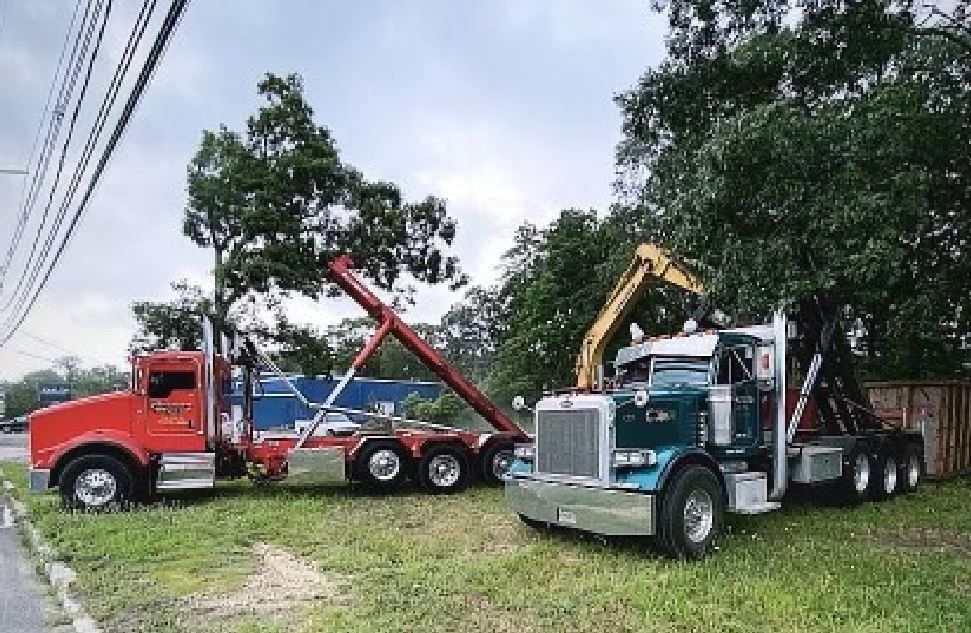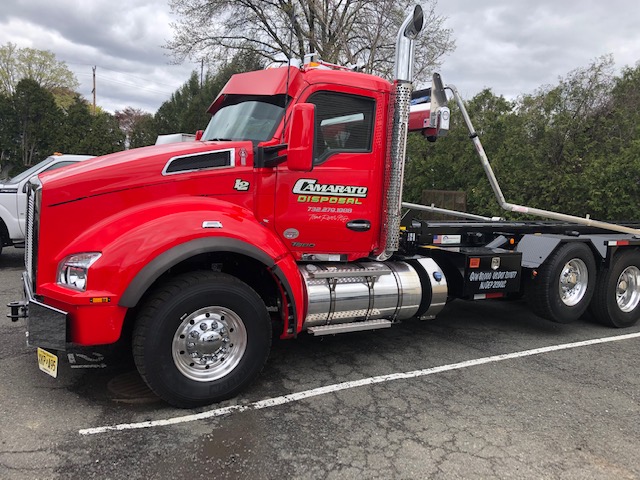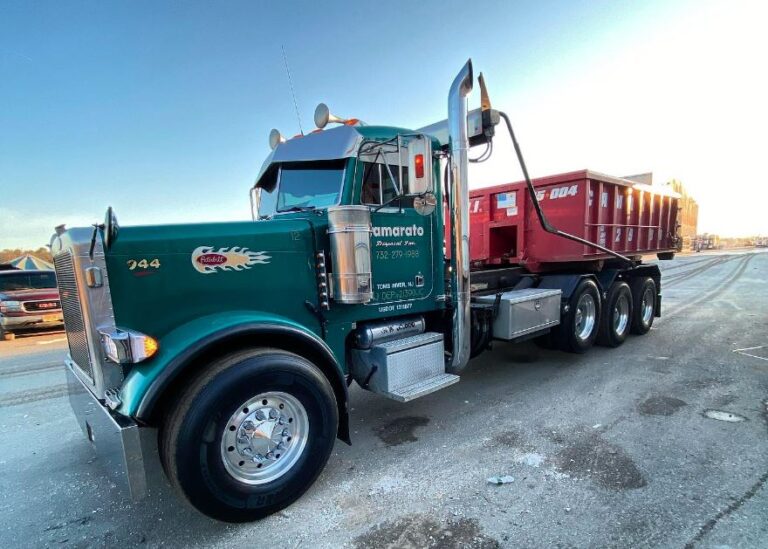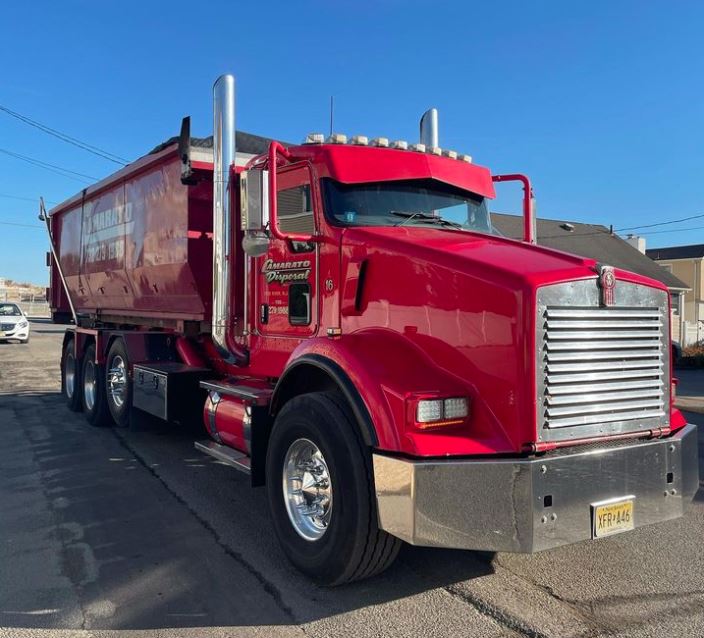At our company, we prioritize safety, environmental responsibility, and adherence to local regulations in all waste disposal practices. Understanding what materials are not permitted in our dumpsters is crucial for maintaining these standards. This is why we’ve meticulously put together a list of restricted items to guide you effectively when utilizing our dumpster rental services. These prohibitions ensure the safety of the public, the protection of our environment, and compliance with the law.
Materials not allowed in our dumpsters include hazardous waste, flammable materials, electronic waste, medical waste, and certain heavy or bulky items such as concrete and hazardous construction materials.

Here are some general guidelines of items that are NOT allowed:
General Guidelines For What’s Not Allowed In A Dumpster
| Materials Not Allowed | Reasons for Exclusion |
|---|---|
| Aerosol cans | Pressurized contents pose safety risks. |
| All liquids | Spill potential, environmental concerns. |
| Animals | Unsanitary, inhumane disposal. |
| Antifreeze | Hazardous chemicals, environmental risks. |
| Appliances | Contains refrigerants, environmental impact. |
| Asbestos | Health hazards, requires specialized disposal. |
| Barrels | Potential for hazardous contents. |
| Batteries | Contain corrosive materials. |
| Chemical products | Risk of chemical reactions, environmental harm. |
| Computers | Electronic waste, recycling requirements. |
| Contaminated oils | Environmental contamination risk. |
| Dirt | Excessive weight, disposal restrictions. |
| Fluorescent tubes | Contain mercury, hazardous waste. |
| Hazardous waste | Diverse materials with potential harm. |
| Herbicides and pesticides | Chemical toxins, environmental impact. |
| Industrial waste | Varied contents, specialized disposal. |
| Lubricating/hydraulic oil | Environmental harm, alternative disposal methods. |
| Medical waste | Health hazards, specialized disposal essential. |
| Microwaves | Electronic waste, proper recycling required. |
| Monitors | Electronic waste, recycling requirements. |
| Motor oil | Hazardous waste, environmental risk. |
| Oil filters | Contain hazardous materials, need special disposal. |
| Other flammable liquids | Fire hazards, environmental dangers. |
| Paint (except dried latex paint) | Liquids pose environmental hazards. |
| Petroleum-contaminated soil/lead paint chips | Soil and lead contaminants, specialized handling. |
| Propane tanks | Explosive potential, safety concerns. |
| Radioactive material | High-risk, specialized disposal mandated. |
| Railroad ties | Treated wood, environmental impact. |
| Solvents | Chemical hazards, environmental risks. |
| Televisions | Electronic waste, recycling requirements. |
| Tires | Bulky, challenging to dispose of properly. |
| Transmission oil | Hazardous waste, environmental harm. |
Additional Restrictions for Larger Dumpsters (30+ Yard Containers)
| Materials Not Allowed | Reasons for Exclusion |
|---|---|
| Concrete | Excessive weight, specialized disposal. |
| Bricks | Heavy and bulky, require proper disposal. |
| Demolition material | Diverse materials, specialized handling necessary. |
Please note that the acceptability of materials can vary by location and dumpster size. It’s crucial to adhere to these guidelines to ensure safety, environmental responsibility, and compliance with local regulations. If you have any questions or need clarification, don’t hesitate to reach out to Camarato Disposal for assistance.
Understanding Dumpster Rental Processes
Renting a dumpster is a critical step in managing waste efficiently, especially for large projects such as renovations, cleanouts, or construction. The process involves several key stages, from selecting the correct dumpster size to understanding what waste it can contain and how it’s eventually disposed of.
Selection and Delivery
The process begins with choosing the right size roll off dumpster for your project. Sizes vary, typically ranging from 10 to 40 cubic yards. Your choice should be based on the scale of your project and the type of waste you anticipate. After selection, the dumpster is delivered to your specified location, ready for use.
Knowing What Goes In
Understanding what is allowed in a dumpster is paramount. Commonly accepted items include household junk, construction debris like roofing materials, and yard waste. However, not everything can be disposed of this way. Hazardous materials are categorically not permitted in dumpsters due to their potential to harm the environment and violate local regulations. This includes, but is not limited to, chemicals, asbestos, and certain electronics. Food waste, while not hazardous, is often excluded to prevent odors and pests. When disposing of prohibited items, it’s necessary to contact a hazardous material collection center for guidance on proper disposal.
The Role of Dumpster Rental Services
Dumpster rental services streamline the waste management process by offering a straightforward solution to dispose of large quantities of waste. These services take on the responsibility of ensuring that waste is not only collected but also sorted and disposed of in compliance with local laws and environmental standards. By doing so, they play a crucial role in minimizing the ecological footprint of waste disposal.
Prohibited Items in a Dumpster
When renting a dumpster, it’s crucial to recognize that not all waste can be disposed of in the same manner. Certain materials are prohibited due to their hazardous nature, potential to cause damage, or legal restrictions. Understanding these limitations is essential for safe and responsible waste management.
Hazardous Waste
Hazardous waste includes materials that pose significant risks to public health and the environment. Examples include pesticides, certain cleaners, paints, solvents, and automotive fluids. These materials are prohibited in dumpsters because they require specialized handling to prevent contamination of soil and water sources, as well as to comply with strict environmental regulations.
Flammable Materials
Common flammable materials such as gasoline, propane tanks, and lighter fluid cannot be disposed of in dumpsters due to the high risk of fire. Safe disposal practices involve contacting your local fire department or hazardous material collection centers, which are equipped to handle such materials safely.
Electronic Waste
Electronic waste encompasses items like car batteries, old computers, and televisions. These items are not permitted in dumpsters as they contain heavy metals and other substances that can be harmful if released into the environment. Recycling centers often offer electronic waste recycling services, providing a safe alternative for disposal.
Medical Waste
Medical waste, including sharps, contaminated gloves, and bandages, poses health risks and is strictly prohibited in dumpsters. Specialized medical waste disposal services are recommended to handle these items, ensuring they do not pose a hazard to waste management workers or the public.
Heavy Materials
Certain heavy materials, like concrete and large amounts of dirt, may be restricted due to the potential damage they can cause to the dumpster and the safety risks involved in transporting overweight containers. It’s important to discuss the disposal of such materials with your dumpster rental service beforehand.
Exceptions and Variations
Restrictions on what can be disposed of in a dumpster can vary significantly by location and service provider. Always consult with your rental company to understand the specific guidelines applicable to your area and project.
Proper Disposal Alternatives
Recycling Centers
For items like electronics and some types of construction debris, recycling centers offer an environmentally friendly disposal option. These facilities separate recyclable materials, reducing landfill waste and conserving resources.
Hazardous Material Collection Centers
These centers specialize in the safe handling and disposal of hazardous wastes. Utilizing their services ensures that dangerous materials are treated appropriately, protecting both the environment and public health.
Local Authorities
For guidance on disposing of flammable materials or other prohibited items, contact your local authorities. They can provide information on the nearest appropriate disposal facilities and any regulations you need to follow.
While dumpster rentals offer a convenient means of disposing of waste, understanding and adhering to the restrictions on prohibited items is crucial. By following these guidelines and utilizing proper disposal alternatives, you contribute to a safer and more sustainable waste management process.



